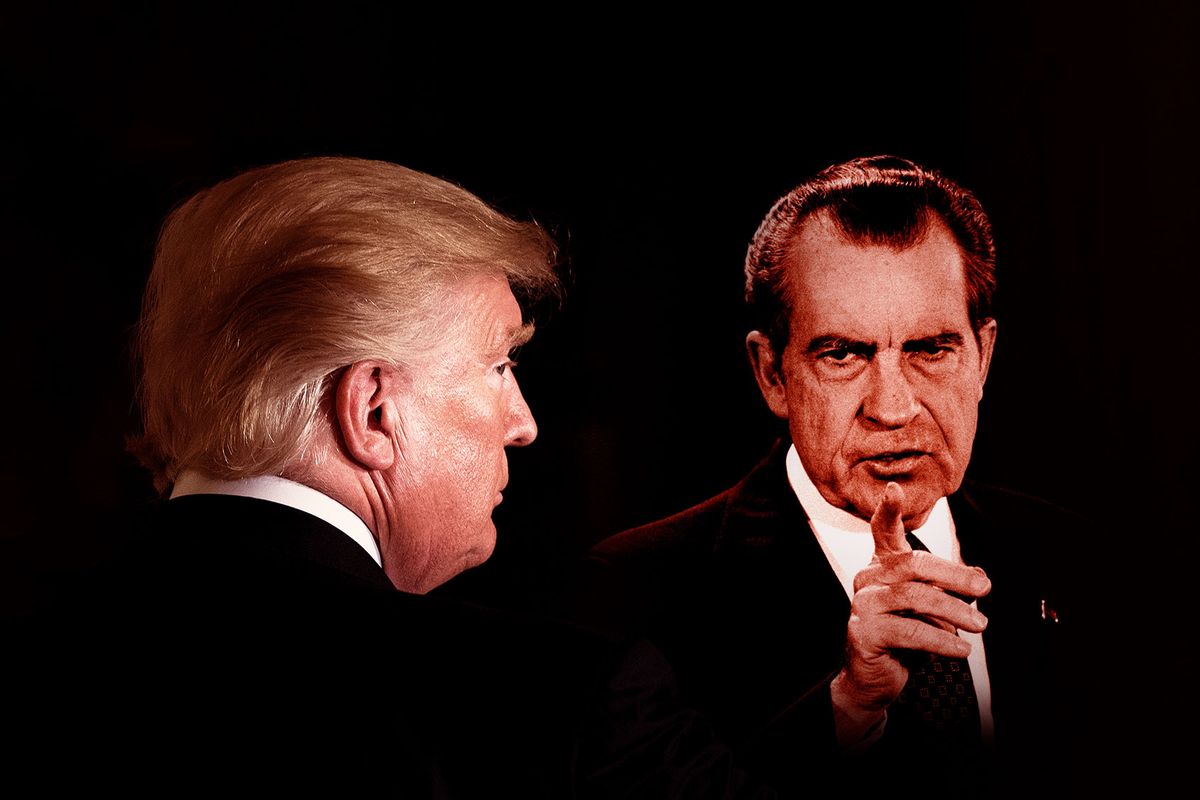Much ink has been spilled over Donald Trump’s record-shattering fundraising for his second inauguration. The president-elect has collected a reported $170 million for the smattering of ceremonies and festivities in Washington, D.C. on Monday, and is expected to raise more than $200 million after fundraising concludes.
Unlike campaign fundraising, there are no legal limits on how much donors can give inaugural committees and there is little transparency around how the money is spent. This, experts say, allows Trump to embrace corporate and individual gifts in a more brazen way that mirrors another president he has been compared to — Richard Nixon.
While nearly half a century separates their tenures, both openly solicited large financial contributions from private industries, wielded their presidential power against American corporations and rewarded loyalty from steadfast supporters.
"Prior to Nixon, relationships between presidents and their closest advisers and corporations were there, but they were comparatively minimal," said Michael Koncewicz, a political historian and associate director of New York University’s Institute for Public Knowledge.
"A new standard"
Trump's $107 million inauguration in 2017 set a record for the modern era, surpassing Joe Biden's $62 million haul as well as those of Barack Obama and George W. Bush, which ranged from $40 million to $52 million.
It represented "a new standard for big donations from supportive corporations and individuals and those who hope to get benefits from the government," Allan Lichtman, a presidential historian and election forecaster, told Salon.
Nixon raised $4 million, or around $28.3 million in today’s dollars, for his 1973 swearing-in. At the time it was the most expensive on record, according to The New York Times.
We need your help to stay independent
For some, the amount likely seemed over the top. For others, it recalibrated the idea of the tradition and a president’s approach to it — particularly that of Nixon, who valued close relationships with big businesses and their wealthy leaders, Koncewicz said.
Federal regulations that forced him to disclose campaign contributions revealed even more. His reelection campaign, flush with secret corporate money, reported raising $60.2 million, $8 million more than it had previously acknowledged. The $52 million was in itself a record-setting haul for that period, amounting to roughly $368.3 million today.
"The level of corporate fundraising that takes place under Nixon reaches an entirely new level," Koncewicz told Salon. "Pre-1972, you don't see the same kind of cozy public relationships between an administration and different corporations."
A "strident attitude regarding loyalty"
Trump and Nixon are far from the only presidents to rake in money for inaugurations. Twelve years after Nixon's $4 million ceremony, Ronald Reagan set a record with a $20 million swearing-in that featured more elaborate celebrations, according to ethics watchdog Public Citizen.
The numbers more or less ballooned over the next 30 years and exploded in the era of Trump, who put few limits on donations for his first inauguration and none on his second, according to Public Citizen.
After his November reelection, donors who had remained on the sidelines in 2017 didn't hesitate to open their wallets. Tech's biggest companies donated $1 million each, along with businesses that had reconsidered contributions following the Jan. 6, 2021 attack on the U.S. Capitol. Newer political power players such as the crypto industry jumped on board, and Trump also accepted $1 million from billionaires such as OpenAI’s Sam Altman and Apple's Tim Cook.
While some are looking for friendly legislation or deregulation, and some might simply want to stay out of Trump's crosshairs, his penchant for loyalty might provide motivation for others — another trait he shares with Nixon.
"While they're very different figures — Nixon cared a lot more about public norms and presidential power, at least how the public perceives presidential power — they both have this kind of strident attitude regarding loyalty,” Koncewicz told Salon.
“It affects their appointments, affects the people that they choose to surround themselves with, and it also affects how they approach fundraising," he said.



Shares